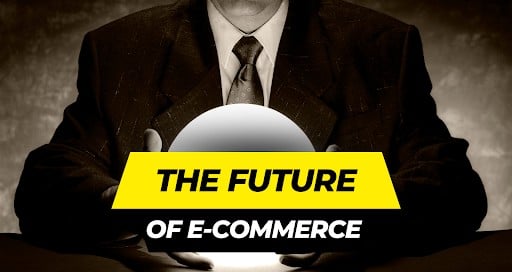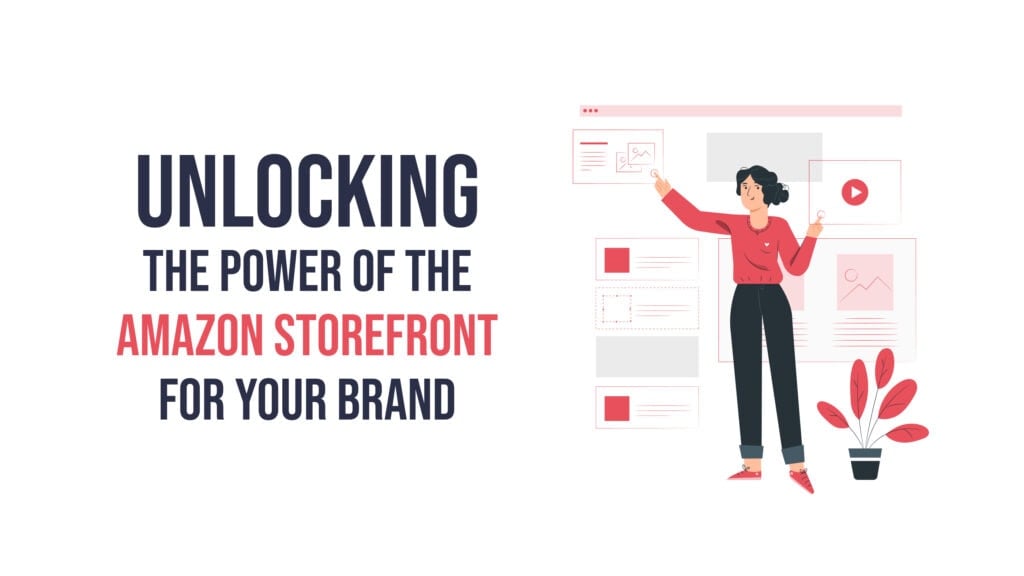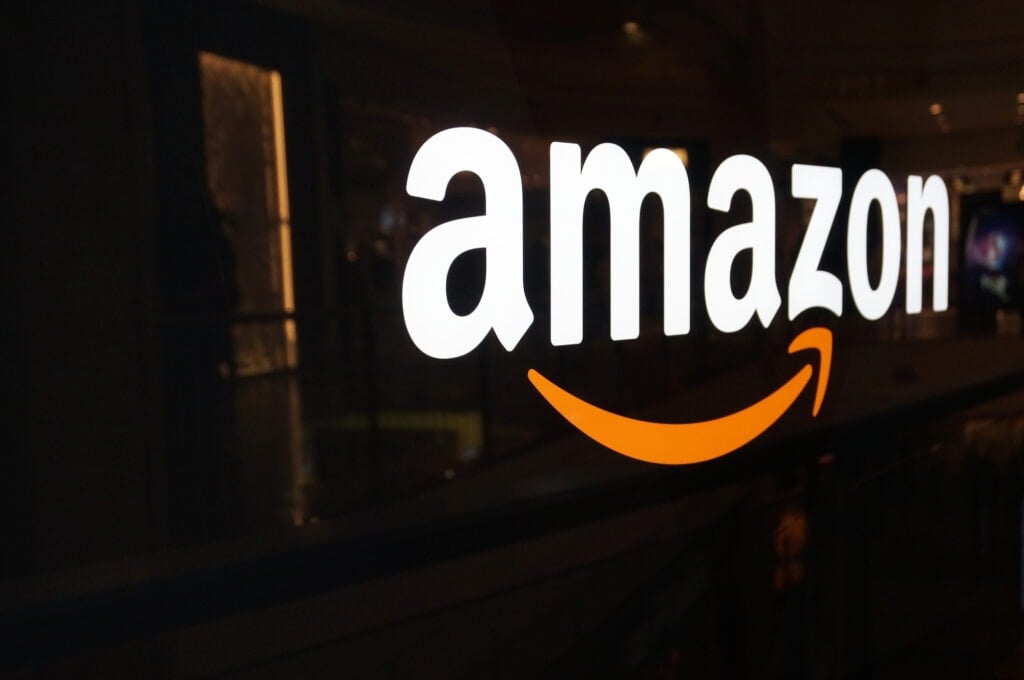It doesn't matter if your business is about healthy snacks, clean car accessories, hardware, or CrossFit equipment, there is a broader audience, and endless potential customers present online. But isn't the Ecommerce industry too saturated already? Is it a good time to dive in, or is it already too late? In this blog post, we will answer all your queries and discuss what the future holds for entrepreneurs in the eCommerce space. So, let's dive straight into it.
A Brief History Of Ecommerce
Ecommerce, or electronic commerce is the buying and selling of goods and services online. It first became a thing in the early 1990s when people started buying and selling things online using their AOL accounts (does anyone remember those?). But it really took off in the mid-2000s when broadband internet became more widely available, and people started using PayPal to buy things on eBay.
Today, eCommerce is a trillion-dollar industry that shows no signs of slowing down. And with the advent of mobile commerce, we can now buy and sell things from anywhere at any time.
So, let's take a look at the history of eCommerce, notable events that led to its formation, and how it has evolved over the years.
- 1969:The first Ecommerce company, CompuServe, launched by using a dial-up connection.
- 1979: Michael Aldrich invents electronic shopping by connecting the computer capable of processing transactions with a TV through a telephone connection. This was done to transfer secure data.
- 1982: Boston Computer Exchange, the first recognized eCommerce platform, was launched.
- 1992: The first eCommerce website, Book Stacks Unlimited, launches.
- 1994: The first online web browser, Netscape Navigator launches. In fact, the first-ever online transaction is believed to have taken place in 1994 as well, when a man sold a CD-ROM containing information about the new internet technology to a woman in exchange for $12.97.
- 1995: Amazon and eBay launch.
- 1998: The revolutionary PayPal launches with the capability of making online payments.
- 1999: One of the most successful eCommerce brands, Alibaba launches.
- 2000: Google Adwords launches, letting retailers advertise their products and services.
After 2000, there were many more inventions that made the eCommerce industry a trillion-dollar marketplace. This included the launch of Amazon Prime Membership offering two-day delivery with a yearly subscription, and Instagram's shoppable tags, giving comfort to people to sell their products or services directly from a social media platform.
Overall, ecommerce has grown rapidly, with businesses of all sizes now using the internet to sell goods and services. In fact, it has become so popular that according to a study by Morgan Stanley, global eCommerce sales are expected to reach $5.4 trillion by 2026.
What Trends Are Currently Affecting Ecommerce?
It is always believed that one of the easiest ways to get rich is to be at the beginning of an upcoming trend. Whether it was Facebook's Mark Zuckerberg or Amazon's Jeff Bezos, many of these billionaires had this in common. Similarly, in e-commerce, you should be aware of the upcoming market trends and be prepared to follow them.

Although people are observing these newer trends, a massive percentage of the entrepreneurs working in the sector seem to be operating as if we're still in 2019. So, let's understand more about these current trends in ecommerce and how you can utilize them for your business.
- Limited Supply: We have seen many times that there is a huge demand for commodities that are scarce and are meant for a very specific population. In recent times, people have been following this trend in the ecommerce industry as well. Businesses are keen on making products suited for a very specific population, and in no time, they are getting sold out.
- Premium Pricing: Nowadays, people are more inclined towards premium products as it is a sign of luxury. This is because these products have good branding, top-notch quality, and better efficiency. That's why this marketplace generally has those people who tend to complain less and refer more, and that's why the premium pricing model is an ongoing trend in the eCommerce industry.
- Influencer-Sponsored Brands: Another key trend that seems like a masterstroke in the Ecommerce business is Influencer sponsored brands. Mind you; we are not talking about Influencer Marketing. Influencer-sponsored brands involve the process of giving a part of the company's equity to the desired influencers. This is a win-win situation for both parties as the company doesn't pay the influencer for a sponsored ad, and the influencer has the potential to make unlimited returns by promoting the brand to their audience.
What Do Experts Predict For The Future Of Ecommerce?
As the world is changing every day, it is prominent that ecommerce will see newer trends in the future. Let's have a look at the top predictions given by experts in the ecommerce industry.
1. Ecommerce Will Continue To Grow Rapidly
With so many consumers shopping online, it's no surprise that ecommerce is playing an increasingly important role in the business world. For companies of all sizes, ecommerce provides a convenient and cost-effective way to reach a global market. And with the continued growth of mobile and social commerce, it's only going to become more popular in the years to come.
2. Companies Will Continue To Invest In Ecommerce
As technology advances, companies will continue to invest in ecommerce to stay ahead of their competition. With more and more people getting comfortable with online shopping, companies are keen on making their products better. Thus, this cash-flowing investment spree won't take a break in the near future.
3. Ecommerce Will Become More Competitive
With so many people wanting to start their own businesses and the expansion of technology and the internet to the masses, the ecommerce industry will have more competition in the future. On the one hand, this can be good news for the shoppers due to competitive pricing, but at the same time, it is a red flag for entrepreneurs looking to make a quick buck rather than those who aim to build a real brand serving a specific audience for the long term.
4. Ecommerce Will Continue To Evolve
Ecommerce is constantly evolving, with new platforms and features popping up all the time. This makes it essential for businesses to step ahead of the curve. As ecommerce continues to evolve, businesses will need to find innovative ways to stay competitive and match the changing customer needs.
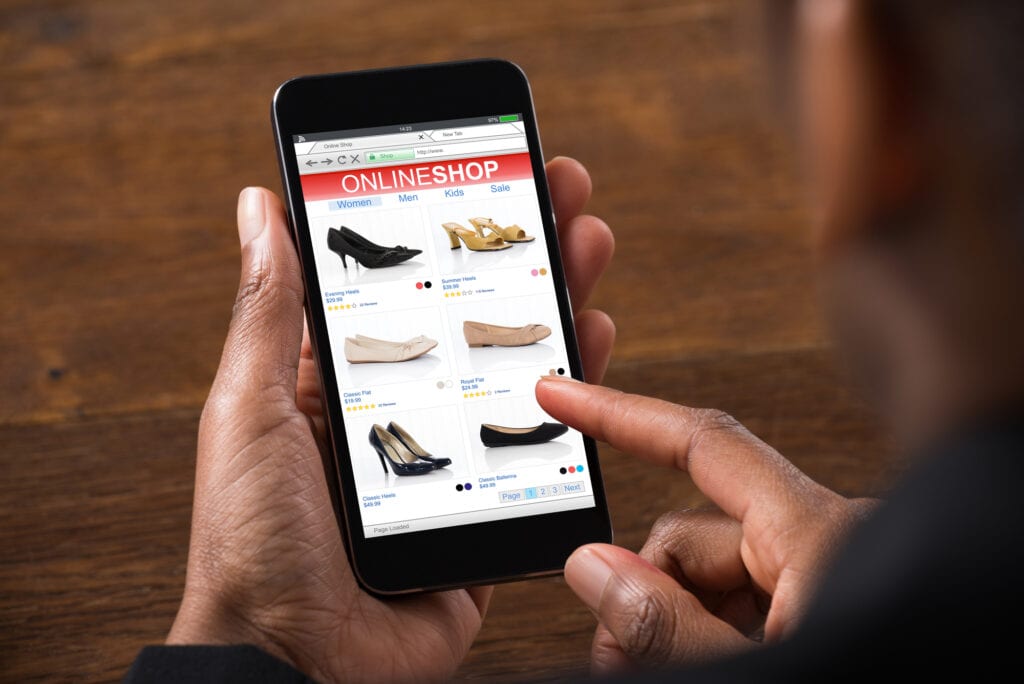
5. New Technologies Will Continue To Emerge
The emergence of new technologies has always been a driving force in the evolution of eCommerce. Indeed, the advent of the internet itself was a major breakthrough that allowed for the development of online retail as we know it today.
As we move further into the 21st century, it is clear that new technologies will continue to emerge and play an important role in eCommerce. Some of these technologies include artificial intelligence (AI), virtual reality (VR), and blockchain. It is clear that the future of eCommerce is bright and that these new technologies will continue to play a key role in its development.
6. Ecommerce Will Continue To Disrupt Traditional Retail
Online retailers have been able to offer consumers more convenience, selection, and lower prices than traditional brick-and-mortar stores. This has led to a decline in foot traffic and sales at traditional retail stores, and according to the experts, this is not going to change anytime soon.
7. Ecommerce Will Create New Jobs
Ecommerce comes with a wave of new job opportunities. The job positions in ecommerce range from marketing and sales to information technology and web development. In fact, almost any field you can think of has a corresponding ecommerce position. That's why as the industry grows, it won't be completely wrong to say that there will be more jobs for drivers delivering the products at your doorsteps than the cashiers in offline stores.
8. Social Media Will Continue To Be An Important Part Of Ecommerce
Platforms like Facebook, Twitter, and Instagram have made it easier for businesses to reach a wider audience. Even a huge part of customers have started using these platforms to shop online, and it is expected that these platforms will continue to have a crucial role in ecommerce.
9. Ecommerce Will Have A Major Impact On The Global Economy
The growth of eCommerce has been staggering in recent years, and there is no indication this trend will slow down anytime soon. Ecommerce is enabling businesses to reach consumers all over the world, and it is changing the way people shop and do business. This growth will have a major impact on the global economy.
How Can Businesses Prepare For The Future Of Ecommerce?
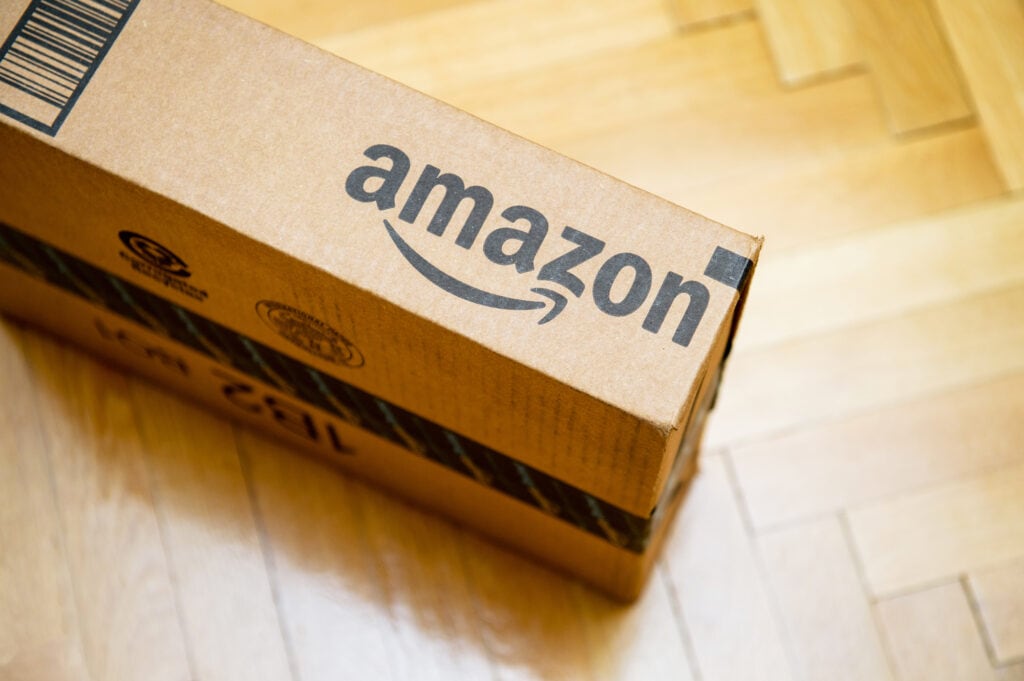
Do you remember when Nokia and Blackberry used to dominate the mobile industry globally? Well, they don't even come close to the top mobile brands in the world right now. The reason?
Well, the key reasons behind their downfall were their inability to adapt to newer trends and not preparing for the future. Similarly, it is important for ecommerce businesses to prepare themselves for the upcoming trends. Here is a step-by-step guide on how you can prepare your business for the future.
Step 1: Understand The Different Types Of Ecommerce
With such intense competition, it is important for you to understand the different categories of ecommerce for your business. They are
- Business-to-Business (B2B)
- Business-to-Consumer (B2C)
- Consumer-to-Consumer (C2C)
- Consumer-to-Business (C2B)
- Business-to-Administration (B2A)
- Consumer-to-Administration (C2A)
All these types of businesses have different dynamics, and understanding them can give you a grip on the eCommerce market.
Step 2: Consider The Customer Experience
The customer is the king, and you cannot afford to take that for granted. Your business's growth depends highly on your customer's experience, and it is among the best ways to analyze your business and products. That’s why you should always consider it to run your online business smoothly.
Step 3: Understand The Importance Of Mobile Commerce
Businesses that want to succeed in today's economy need to be prepared for mobile commerce. They need to make sure their websites are easy to use on smartphones and tablets, and they need to develop strategies for reaching more customers through mobile devices. By doing this, they can ensure that they are taking advantage of one of the fastest-growing segments of the digital marketplace.
Step 4: Consider The Impact Of Social Media
As social media continues to grow in popularity, businesses must consider its impact on their consumer base. Many users now rely on social media to learn about products and services and even to communicate with businesses. That's why It is vital for businesses to have a strong social media presence. Additionally, businesses should master social media for advertising and promoting their products and services to their target audience.
Step 5: Consider The Rise Of Ecommerce Marketplaces
Ecommerce Marketplaces have been the best platforms for shoppers as well as sellers to market their products. It has been on the rise ever since ecommerce started catching hype across the globe. This is because these marketplaces consist of everything a customer or a seller needs to fulfill their goals. Therefore, it is very important for any business owner to utilize these rising marketplaces and make the most out of their offerings.
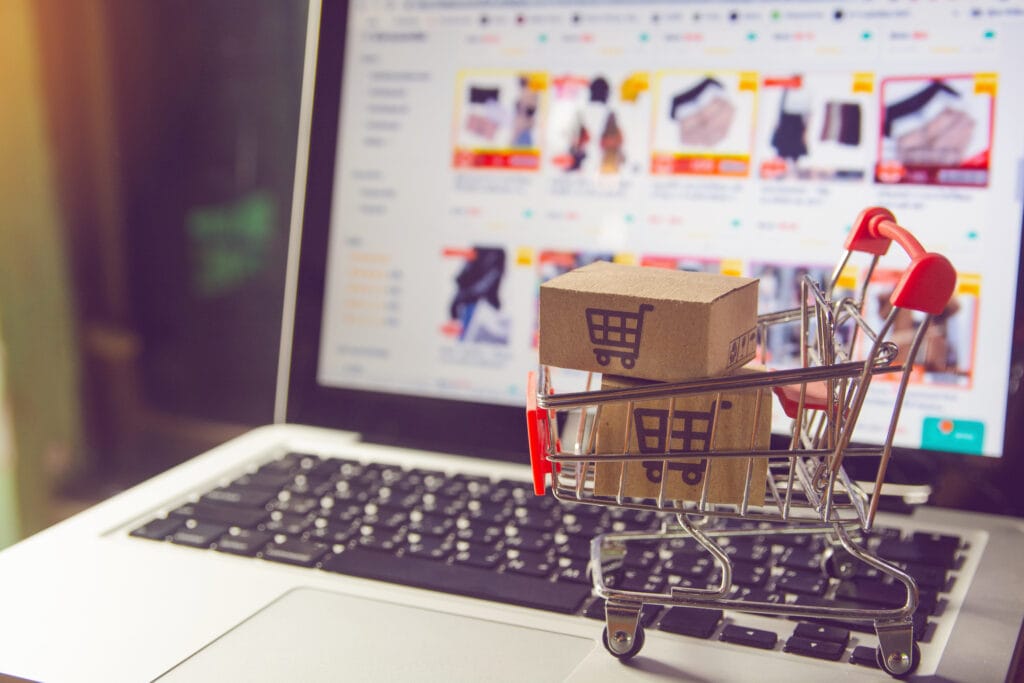
Step 6: Understand The Importance Of Supply Chain Management
Supply chain management is an essential piece of business for any organization that wants to be successful in the future of ecommerce. By optimizing all aspects of the supply chain, businesses can reduce costs, improve efficiency, and meet customer demand.
Step 7: Understand The Impact Of New Technologies
Technologies such as 5G, artificial intelligence (AI), and the internet of things (IoT) will soon play a major role in eCommerce. Businesses should begin preparing for these technologies now, so they get ready to utilize them when they become mainstream.
Step 8: Understand The Importance Of Global Ecommerce
Global ecommerce is the buying and selling of goods and services throughout the world, irrespective of geopolitical borders. This increases the brand visibility, and the customer base as the products are exposed to a larger audience. All these factors make it crucial to understand global ecommerce for a better future.
Step 9: Consider The Impact Of Changing Customer Behavior
The world is all about newer trends, and a customer is always looking out for something unique. In such times, no matter how good your product is right now, if you don't adapt to the changing trends, you will soon be out of the race. So, understanding the changing customer behavior and adapting your products is very important to limit the turmoil in your business.
Ecommerce Statistics
When talking about a business, it is important to present numbers to validate your statements. Here are a few stats that prove the rising trend and the money spent in the E-commerce industry.
- In 2021, retail eCommerce sales made approximately 5.2 trillion U.S dollars across the world.
- The top five largest eCommerce markets in the world as of 2021 were:
- China: $2,779 billion
- USA: $843 billion
- United Kingdom: $169 billion
- Japan: $144 billion
- South Korea: $121 billion
- Amazon.com was the most visited ecommerce website, with a traffic of over 2.4 billion monthly visitors.
Source: Statista
- There are more than 26 million ecommerce websites present on the internet, and more and more are being created every single day.
- The fastest-growing ecommerce category in the U.S is Food.
Frequently Asked Questions
What Is Ecommerce?
Ecommerce is the buying and selling of products and services over the internet. It involves online transactions, home delivery, and many other features.
What Is The Future Of Ecommerce?
With the world advancing every day in terms of technology and innovation, it’s a sure bet that the ecommerce industry will continue to grow further. On top of it, features like 24 hours delivery, try and buy, and sharing your products with your friends, will make ecommerce more user-friendly and popular in the future.
What Are The Benefits Of Ecommerce?
Ecommerce has revolutionized the way people shop. It offers a variety of benefits over traditional shopping methods. Some of them are:
1. Convenience: Ecommerce allows people to shop from the comfort of their houses. They can browse through a variety of products and make their purchases without going anywhere. This is especially beneficial for people who live in rural areas or who do not have access to physical stores.
2. Variety: E-commerce offers a much wider selection of products than traditional stores. This is because online stores do not have physical space limitations and can carry a much larger inventory than traditional stores.
3. Cost savings: Online stores often offer lower prices than traditional stores because they do not have the same overhead costs. This allows shoppers to save money on their purchases.
4. Efficiency: Ecommerce allows shoppers to quickly and easily find the products they are looking for. This reduces the amount of time spent shopping and allows people to get what they need more quickly and easily.
What Are The Challenges Of Ecommerce?
There are a few challenges in the ecommerce industry as well. The first major hurdle is cyber and data security. As it involves an online platform, there is always a risk of potential cyber-attacks and fraud. The second most challenging factor for any ecommerce business is its customer experience. A slight mistake can lead to a poor customer experience and eventually damper the company's sales. Lastly, the intense competition in the ecommerce industry squeezes the profit margins and poses a huge risk for entrepreneurs who don’t follow a proven strategy that allows for premium pricing.
What Is The History Of Ecommerce?
One of the earliest examples of ecommerce was the online auction site eBay. Founded in 1995, eBay allowed users to buy and sell items online. This was a revolutionary idea at the time, as it allowed people from all around the world to connect and do business with each other.
Other early e-commerce pioneers included Amazon (founded in 1994) and PayPal (founded in 1998). These companies paved the way for the modern era of ecommerce, which has seen explosive growth in recent years.
What Is The Difference Between Ecommerce & Traditional Commerce?
Ecommerce enables companies to sell and deliver their products and services electronically. This type of commerce involves the use of the Internet to buy and sell products and services.
Traditional commerce involves buying and selling goods and services through a physical storefront or marketplace. With traditional commerce, customers can see, touch, smell, hear, and even taste the products they are considering purchasing.
What Are The Most Popular Ecommerce Platforms?
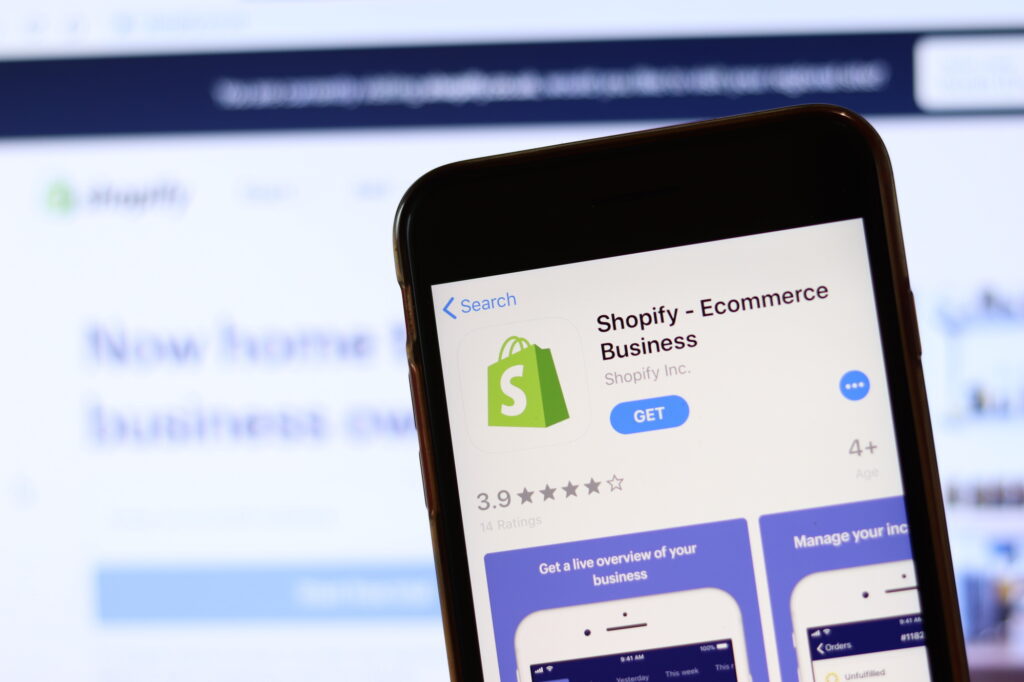
Some of the most popular ecommerce platforms are Shopify, WooCommerce, BigCommerce, Elementor, and Pixpa.
What Are The Most Popular Ecommerce Businesses?
Some of the most popular ecommerce businesses across the world include Amazon, eBay, Alibaba, Rakuten, and Walmart.
Kirk, please embed this video: https://youtu.be/xbZ8AXhWSUQ
How Can I Start An Ecommerce Business?
Starting an ecommerce business can be a great way to make money while working from home. Here are a few steps to make it happen.
- Choose a person to serve: Rather than selling products to “anyone” who’ll buy them, choose a specific group of people you care about enough to invest a few years in making their lives better. Think about a person who’s embarking on a new journey in life: new parents, new pet owners, or people trying to get fit.
- Choose a product to sell: There are many products that can be sold online, so you will need to get to know “your person” and what products they wish someone would create - products that will solve problems they’re facing. You can sell physical products, digital products, or services.
- Set up a website or store: This is where you will sell your products or services. You will need to create a website or store and design it in a way that is appealing to buyers. You can use a platform like Shopify to easily set up your online store - or go with Amazon to reach a much larger audience
- Market your business: You will need to promote your business online in order to attract buyers. This can be done through social media, paid ads, or SEO.
- Ship products and handle payments: Once a buyer has placed an order, you will need to ship the product and handle payments. There are many platforms that can help you with this, such as PayPal and Stripe. Of course, if you sell via Amazon FBA or a 3PL (third-party fulfillment) service, you can outsource this part of your business.
By following these steps, you can start an ecommerce business that is successful and profitable.
Want to learn more about how you can build a million-dollar ecommerce business of your own in the next 12 months? We created this free video training just for you.
